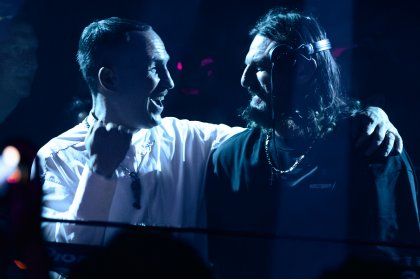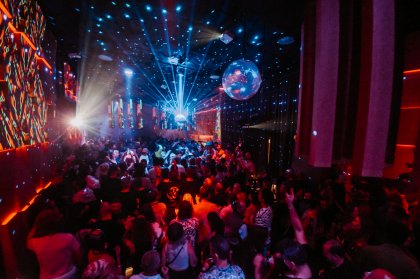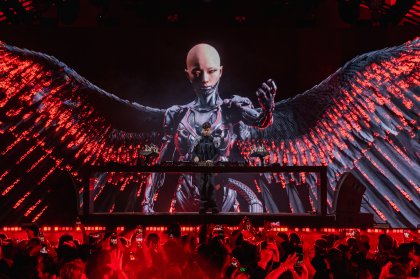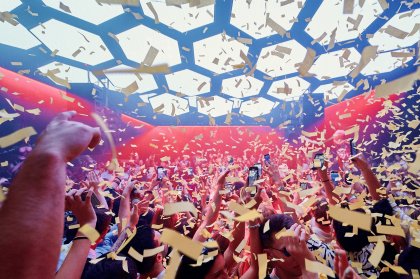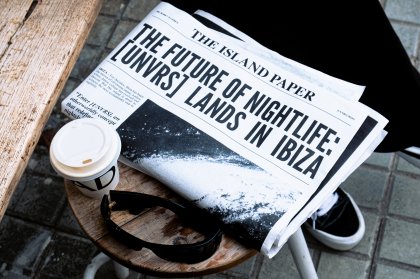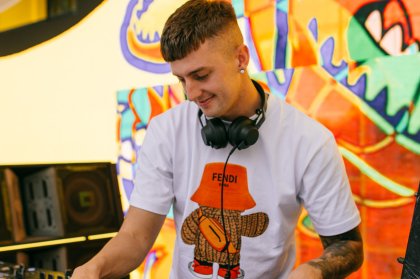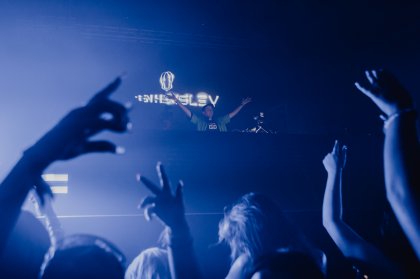By the end of the ‘90s, Space Ibiza shone like a lighthouse. It signified freedom from fear of missing out; freedom from the past; freedom from responsibilities - tomorrow dissolved into irrelevancy and flight arrangements suddenly seemed trivial. Accompanied by dear friends, both seasoned and newly acquired, you could place total trust in the impending half-second heartbeat of sound as you freestyle danced in the dappled Mediterranean sun. The kick drum was king, love was all around - there, in that place, something just clicked.
My spirit soared as my plane roared over Playa d'en Bossa in 1999 - one of many aircraft conveying punters on the trip of a lifetime. The strains of our buddy, Bob Marley, singing “Sun is shining” over a mellow 4/4 beat could be heard on every corner of this, my new home. Despite, or because of, the global demand for ultraviolet radiation and transcendence was high. The queue for Space was a mêlée as usual. I dived in.

To me, Space felt different from the White Isle's other famous venues such as Pacha, Amnesia and the cavernous Privilege. To state the blindingly obvious, Space was open during the day - imagine the wonder of emerging from six months raving in the depths of London. Space 1999 blew my mind and transported me to another world, in a manner not dissimilar to the celebrated sci-fi tv series. Both enterprises had a strong focus on high production values and funky theme music - I was a fan.
In my European media career I orbited ever closer to the club deemed the best in the world. By 2003, Space had become the focus of my professional existence, as I took on the role of content contributor for its website. I went several times, every week it was open, for four years. Hospitality was extended to me by every gig, night and day: I salute the creators of La Comunidad, Carl Cox, Darren Hughes and his team at We Love, What's Up?, In Bed, the merry Matinée band from Barcelona, Manumission's cataclysmic Carry On, and the rest. I spoke with most of the DJs and promoters and photographed the venue and its patrons for months at a time, so I feel adequately qualified to provide this commentary - an inside story of Space 2003 to 2006. Complaints to the usual address.

State of the world
In 2003, explosions echoed around the globe. The Space Shuttle Columbia disintegrated over Texas. Meanwhile, a coalition of forces led by the United States invaded Iraq live on television as the rest of the world went, ‘WTF'. The adoption of the euro fuelled inflation. Crime was rife, life intense. We participants in the European project rolled obliviously into a heatwave; the hottest summer since 1540. The tsunami from the Algeria quake on 21 May that year bumped boats in the Balearics, but once those ripples from globally significant events subsided, Ibiza 2003 was on.
Hype, lies and gossip
Writing up Space's famous opening party wasn't a hard task. Wanting to make a good impression, I got there early, submitted one report in the afternoon then returned for the remainder of the party. Reading my stuff now the wry hyperbole seems appropriate, if rushed. The photos look a bit barato, although I may be forgiven considering the size limit was 30 kilobytes. Our tools were desk-bound PCs - mobile phones just did calls and text messages. We moaned about the trickle of data over the sparking island infrastructure, crossed everything and hoped nothing would blow. I sailed into the most important working day of my life thus far on a number 14 bus from Ibiza Town to Platya d'en Bossa. Prose emitted and photos submitted I watched the story count stats tick over. Traffic spiked and my bosses Sam and Jean Louis - at that time in charge of the Space website - were content. Thousands poured through doors and clicked links; the marketing was judged a success.
My efforts were nothing to those who came before me - in particular Space's Ibicenco owner, Pepe Roselló, who in a more fraught era smuggled the contraband cultural product commonly known as vinyl records in defiance of a fascist regime. The man was a giant.
I did wonder at the incongruity though. Great risks were taken and sacrifices made so every Tuesday Manumission's kinky crew could prance about at Carry On. Was this Dionysian whirlpool the Western world's reward for the victory of the values of personal autonomy? It appeared so. I'd never seen a more cosmopolitan crowd, all enthusiastically engaging in hedonistic pursuits.
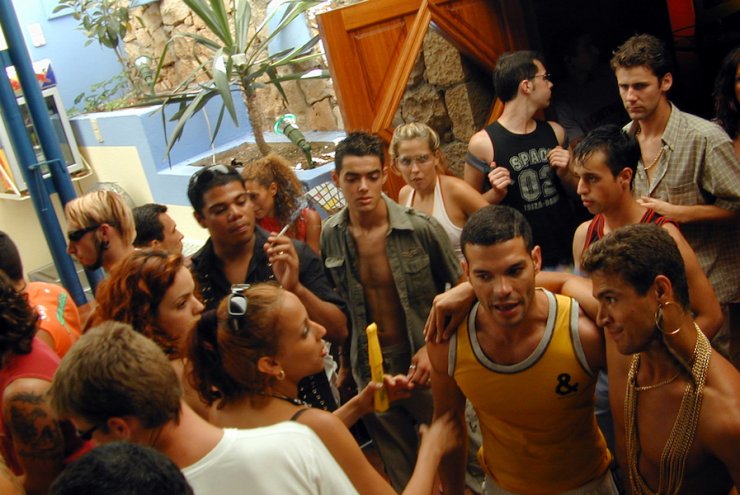
I interviewed my friend Sharmilla, described as a “superintendent of the asylum”, about the entertainment program on offer one typically gorgeous day. She plugged the Indian breakfast, served at 10.30 AM. “We have homemade ice cream, fruit platter and little naan bread wraps, so we cater for all types of partygoers,” she informed me. “We also give out toys at 12 o'clock every week, and we're sponsored by Holala, so we're dressed in Ooh La La lingerie.” This seemed perfectly sensible - bikinis were standard attire; pecs stretched from wall to wall.
Also common was the consumption of liquor after dawn. Sheryl Crow sang about liking a good beer buzz early in the morning and plenty of partygoers followed her lead. Generally speaking, you had three choices when attending one of Space's day parties: go out all night and turn up fully lubricated as soon as the doors opened, slide in smugly at 9 AM, refreshed and ready to play catch-up, or ‘piggyback'. This last option, my preferred mode, involved limiting intake to coffee or something similarly soft and coasting on the contact buzz. I was determined to avoid burnout.
The business of pleasure couldn't be facilitated without sober, professional people, and they could be found via the unassuming door that led from Space's dark and booming Discoteca to the brightly lit oficina out the back. Passing through this portal could be disorienting - you did not want to be wasted here, sweating in a corridor lit with glaring fluorescent bulbs waiting for your turn to do business. Flamboyantly dressed men and unfeasibly glamorous women perched next to well-pressed club industry execs. All sought an audience with one man.
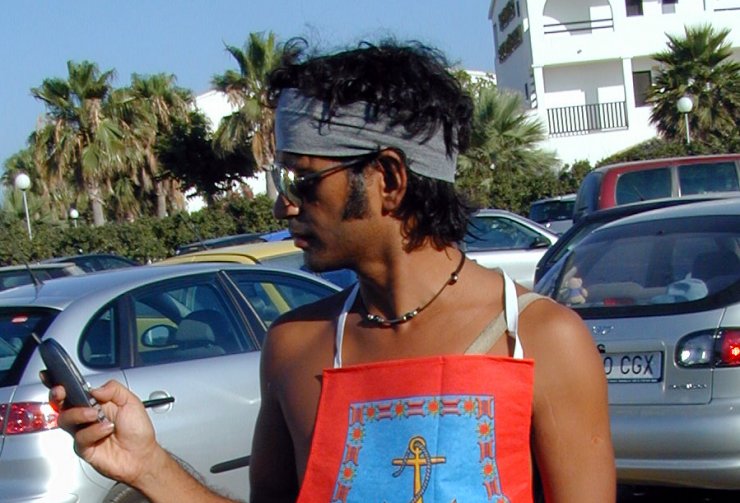
Fritz Pangratz
Pepe was the architect of the Space project but in 2003, Fritz Pangratz was the plumber - the guy who made everything happen. Fritz was a local celebrity - we talked of him often, swapped information about his moves and analysed his words in an attempt to see inside his mind. This Teutonic tower of power was gatekeeper to heaven for a significant percentage of the island's intense leisure industry. If terms were good, life was rosy. If terms were bad...
He was a great interview, forthright and reliably handsome in the photos. Not long before the end of the season I asked him which parties he enjoyed the most.
“My favourite party is the closing party I have to say,” he told me. “First of all, it really is the best party from Space - it's something which you cannot explain. I do not know why but is a kind feeling here with the people, the DJs, and the atmosphere. It's something really special, and of course, all the pressure you had during the season really goes away. You step into another period of life.”
“Especially since we now do the car park, which also gives big hype. People have enough space in Space again - before it was very tense and crowded. People didn't enjoy it any more. We have an obligation to get all the people in because there is also a lot of people from the island who visit the club, and it's not good for us if these people stay outside. So with the car park we have the possibility to let all these people in and it's a really nice atmosphere.”
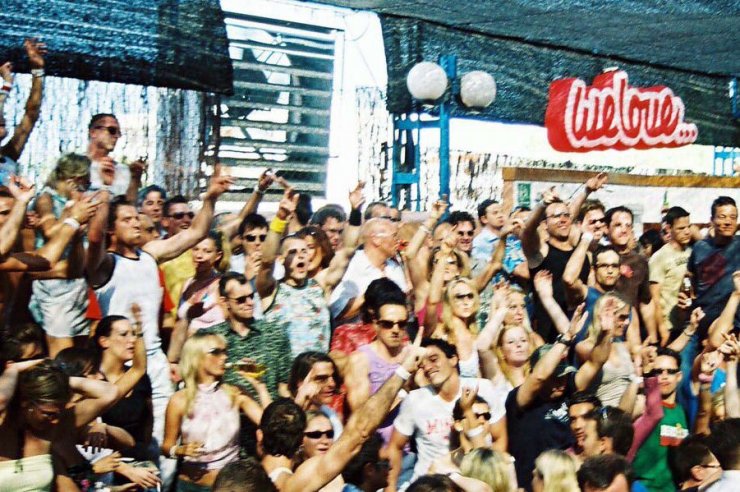
Metamorphosis
Ah, Space closing. That time of the year when people paid good money to dance on car park asphalt. But Fritz's instincts were sound and the 2003 edition was one hell of a gig. It also signalled Space's growth ambitions. In winter 04-05, Space was rebuilt - the famous terrace was covered and new rooms were added. Looking back now it was an important phase as the pioneering day club evolved into a night venue.
Lift-off at the 22-hour We Love Sundays got later, now reaching ignition point after sunset. Night promotions were signed up and the competition got nervous. The increase in energy levels was dramatic. At least part of that could be attributed to the startlingly powerful Funktion One sound system. From the rubble emerged new zones: the Sunset Terrace (just like the old terrace!), La Caja Roja (small, red!), the Premier Étage (chilled, outdoors, yellow!).
Also in 2004, the Space website contract was won by Ibiza Spotlight, the publisher of this article. It would be fair to say we took less provocative angles on Space-branded content and put more emphasis on photos, video and tickets. The strategy was to allow the experience to speak volumes. The top parties at that time were We Love, which had the best line-ups, Matinée which had the best atmosphere, Carry On with the best outfits and Carl Cox, which offered the best value for money. However, the conspicuous success did not prevent the rumours from swirling; every year doomsayers whispered of dark forces conspiring to enforce licensing restrictions and prohibit partying in the daylight hours. Green-clad Guardia lurked.
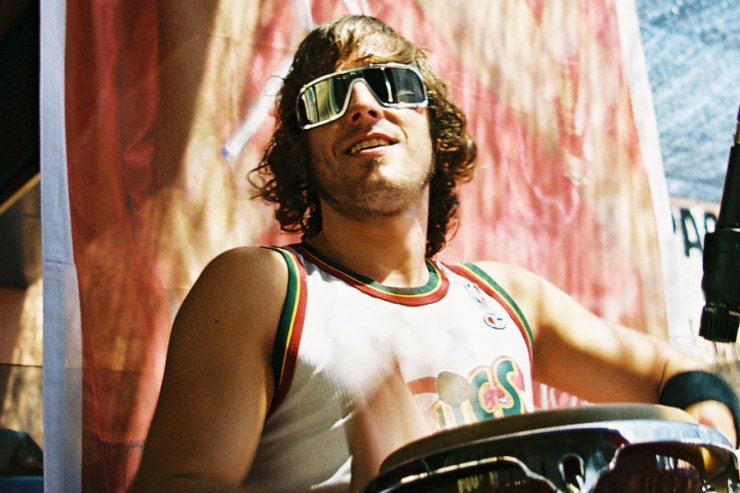
Sociable media
This was a time before Facebook. MySpace was dominant but sagging, and the vigorous Spotlight forums were arguably the most influential regional social media network. I mined them - they were an invaluable source of data.
In the Spotlight club news I appreciated being given latitude to get a little political and do stuff about a subject close to my heart - transport. I think my finest hour was a two-part series on Ibiza's lethal roads and the effect their upgrade would have on club tourists. Starting in Sant Antoni, the “Race to Space” featured editorial staff Dan Gines, Buckley and myself competing to get to the other side of the island first in buses, a taxi and a car respectively. Throughout the halcyon days of 2005 and 2006 there was no shortage of entertainment. A highlight was the time we befriended Formula One driver Jenson Button, celebrating his maiden grand prix victory with a tour of Ibiza.
These fragments I have shored against my ruins
Really though, we were all special. There were no roped off VIP areas. You could even hang out in the booth if you knew the DJ, or if you were at the top of your game you might get to spin a few tunes yourself. As Pepe said when waxing lyrical at the most recent edition of IMS about his investment in sonic technology: “the sound made all of us equals; the music made us all one.”
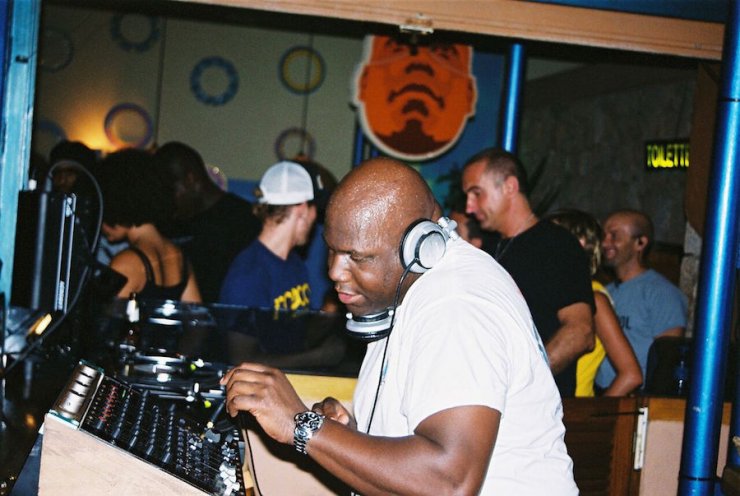

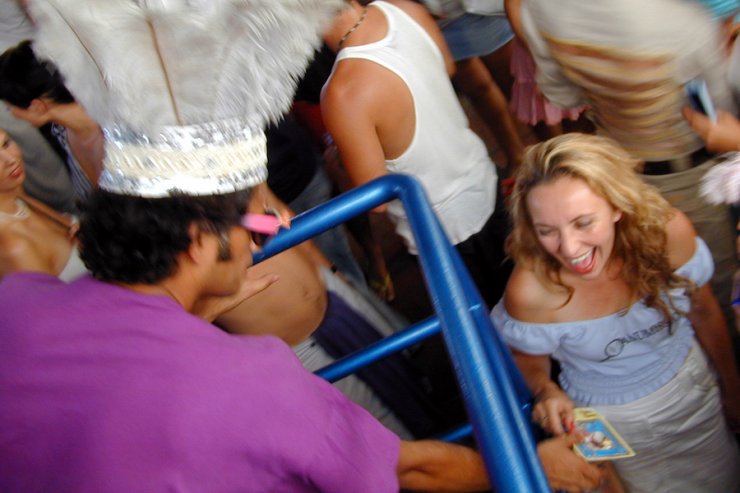
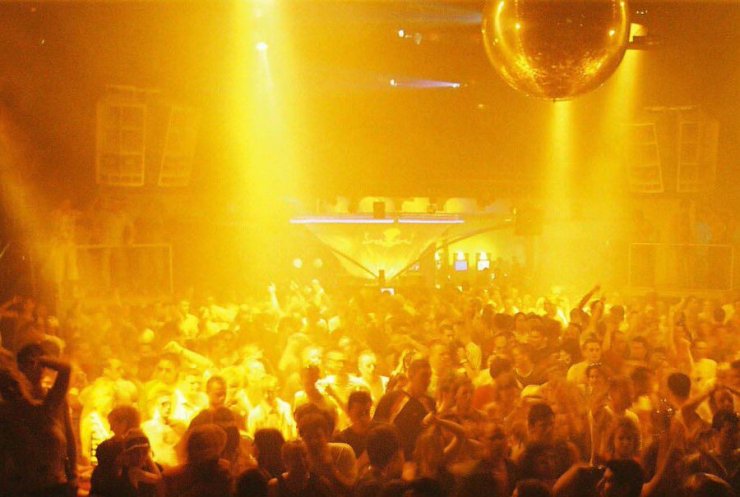
WORDS & PHOTOS | Mike Stuart
